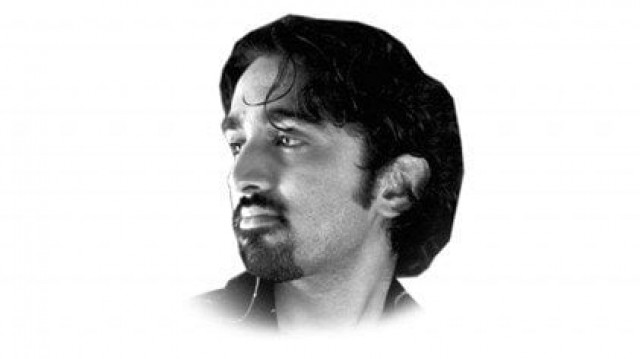Give me back my human voice

Needless to say, when I saw him performing live on television the other day, I had to sit down and watch. But I was strangely disappointed. This didn't seem to be the same Rahat with the soaring vocals and the pitch perfect command over melody. Sure he was hitting the notes, but something seemed off. Dare I say it, he seemed beysura (the much used Urdu word for “off key”).
I thought he was simply having a bad day. Then I met a friend who said he had recently seen both Rahat and Shafqat Amanat Ali perform live and he found both of them to be beysura. This followed a long line of reports from people lamenting that their favorite singers were just simply not good at singing live. I was intrigued. I didn't think these two incredible vocalists, who come from a long line of distinguished singers, could possibly be singing off key. After all, these guys were trained to sing before they could walk. They could probably sneeze melodiously if they chose to.
It occurred to me that Shafqat and Rahat were probably singing the way they have always sung live. But it was possible that we had become too used to hearing their voices digitally altered to perfect pitch using Auto-Tune.
Auto-Tune is a programme used by record producers that digitally corrects human singing. It was invented to fix tiny variations in pitch that come naturally to most vocalists, the final result being a perfect vocal take that is mathematically flawless whena it comes to timing and pitch. These variations or tiny mistakes are not something most people can detect aurally, but rather something they can just feel. It usually marks the difference between an amateur and a professional recording. Almost all commercial music we hear today utilises Auto-Tune.
I feel that digital perfection is robbing vocal performances of their natural charm. Most of my favourite singers recorded songs before the digital age. We can go back and listen to them and we'll hear some wonderful off-key moments in their songs. Listen to old Nazia and Zohaib Hassan songs. Take a look at Alamgir. Even the great Nusrat Fateh Ali Khan had points in his performance where he sang notes that were not 100 per cent perfect. However, he made up for it with emotion and feeling. He sounded human.
Today the notes are so perfect, so polished they don't feel natural. One can detect a digital hiss instead of the warmth of human timbre. Since our public is now so used to hearing digital perfection, anything sung at a slightly-less-than-perfect pitch sounds off-key. We're beginning to hold our live performers to an extremely difficult standard.
I'm not trying to make excuses for singers who truly are bad at singing live. But I don't think human voices are supposed to sound this digitally perfect. The beauty of the human voice lies in its flexibility, in its versatility and emotion. To pin it down to a mathematically accurate soundwave frequency is to rob it of all things that make it a voice rather than an instrument. So the next time you hear a great vocalist singing live, and something seems to be ever-so-slightly off, you'll know that's just a beautiful, natural human voice.
Published in the Express Tribune, May 11th, 2010.
















COMMENTS
Comments are moderated and generally will be posted if they are on-topic and not abusive.
For more information, please see our Comments FAQ